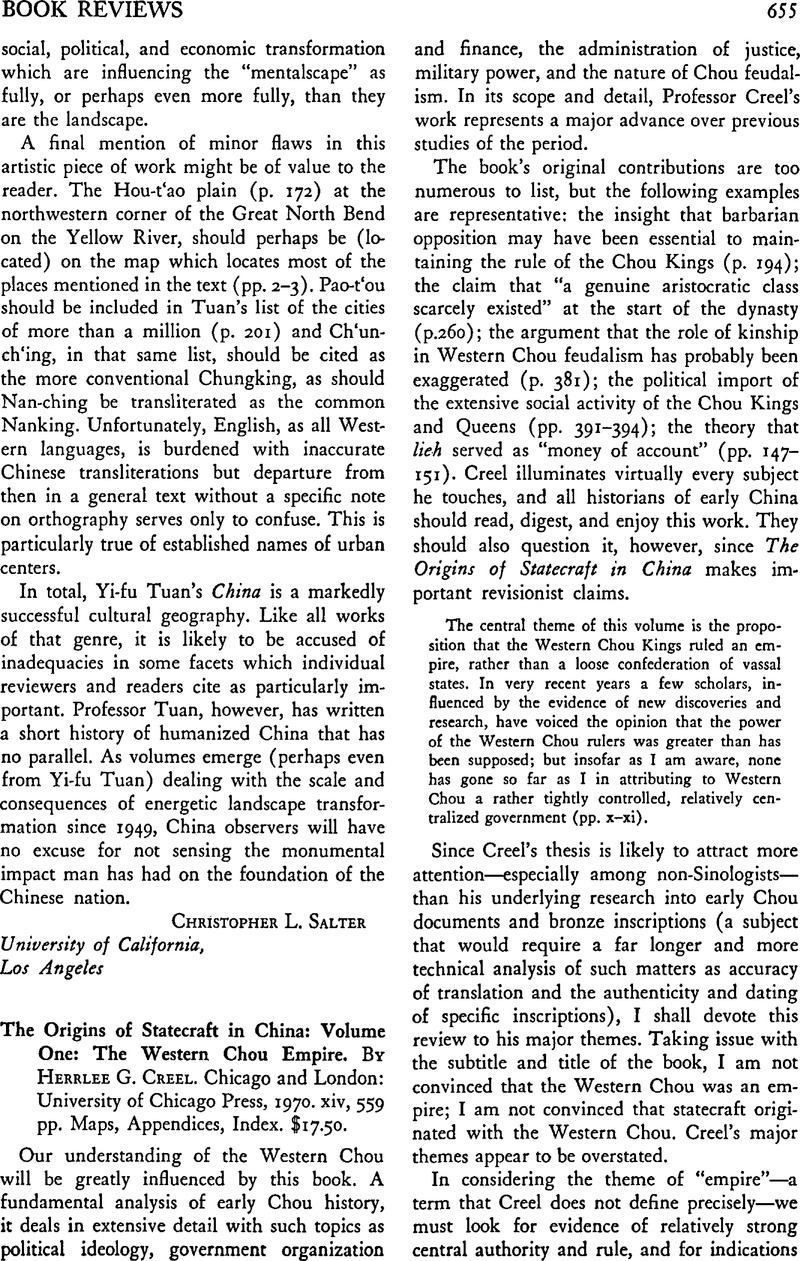Article contents
The Origins of Statecraft in China: Volume One: The Western Chou Empire. By Herrlee G. Creel. Chicago and London: University of Chicago Press, 1970. xiv, 559 pp. Maps, Appendices, Index. $17.50.
Published online by Cambridge University Press: 23 March 2011
Abstract

- Type
- Book Reviews—China
- Information
- Copyright
- Copyright © The Association for Asian Studies, Inc. 1971
References
1 Creel has a valuable appendix on “The Origin of the Deity T'ien” which argues that the character t'ien (Heaven) is a variant form of the character ta (great). This hypothesis may need elaboration. The box or “head” which appears in some of the Shang graphs for t'ien or ta, and which appears as a “disk” in the Chou inscriptions (p. 497), is, in all probability, the Shang way of writing ting (top, superior). Shima Kunio has proposed the hypothesis that ting was used as a title for Shang Ti in the Shang bones (In kyo bokuji kenkyū (Hirosaki, 1958), pp. 181–183). If Shima is correct, this would suggest a similarity of meaning between ti and t'ien (cf. Shima, pp. 218–219), and a further continuity between Shang and Chou political-religious beliefs.
2 Shima, p. 342.
3 As Creel notes on p. 106. His statement, however, that “Ch'en Meng-chia concludes, at the end of his lengtiiy catalogue of Shang official titles, that ‘Director of Crime, Director of Works … and so forth seem to be purely Chou institutions’” (p. 108) misquotes p. 522 of Yin-hsü pu-tz'u tsung-shu, and ignores the suggestion about the Shang origins of the “Director of Works” (ssu-kung, later ssu-k'ung) made by Ch'en Meng-chia on p. 519 of that work.
- 1
- Cited by


